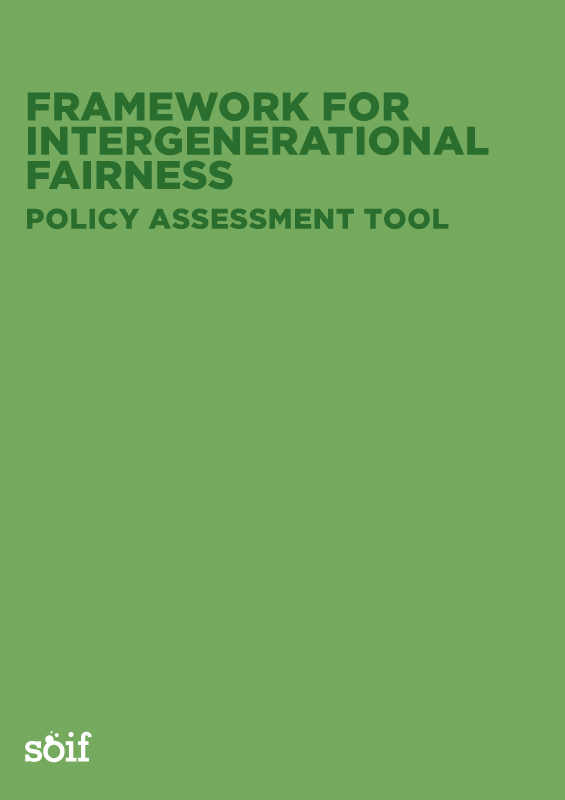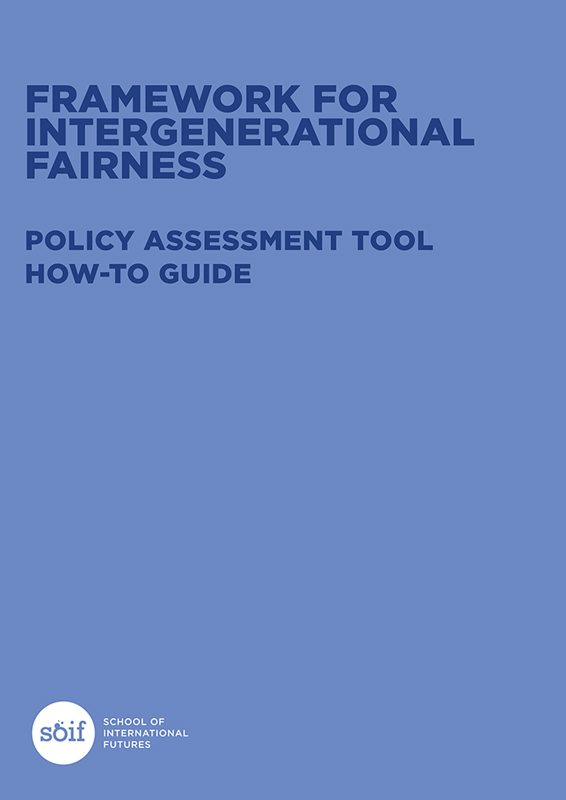Fair public policies for all generations
An assessment framework
How to assess the impact of a public policy on the lives of all generations, from those who are alive to those who are not born yet?
Together with the School of International Futures, we developed an innovative tool for systematic and impartial assessment of public policies for their impact on all generations, present and future, to identify potential intergenerational imbalances.
What is it?
The Framework for Intergenerational Fairness is a tool for systematic and impartial assessment of public policies for their impact on all generations, present and future, to identify potential intergenerational imbalances.
What is it used for?
To whom is it addressed?
Public sector experts, whose function is to develop opinions and formal recommendations to the government.
Civil society: universities, think-tanks, media and other entities or citizens, whose purpose is to make their own judgement, to be better informed and to pressure political power.
What is a fair policy to all generations?
A policy is fair to all generations when it allows people of all ages to meet their needs of the present without compromising the ability of future generations to meet their own needs.
A policy is intergenerationally unfair when:
How does it work?
It includes five flexible stages that may be applied to any kind of policy or strategic decision.
Resources

